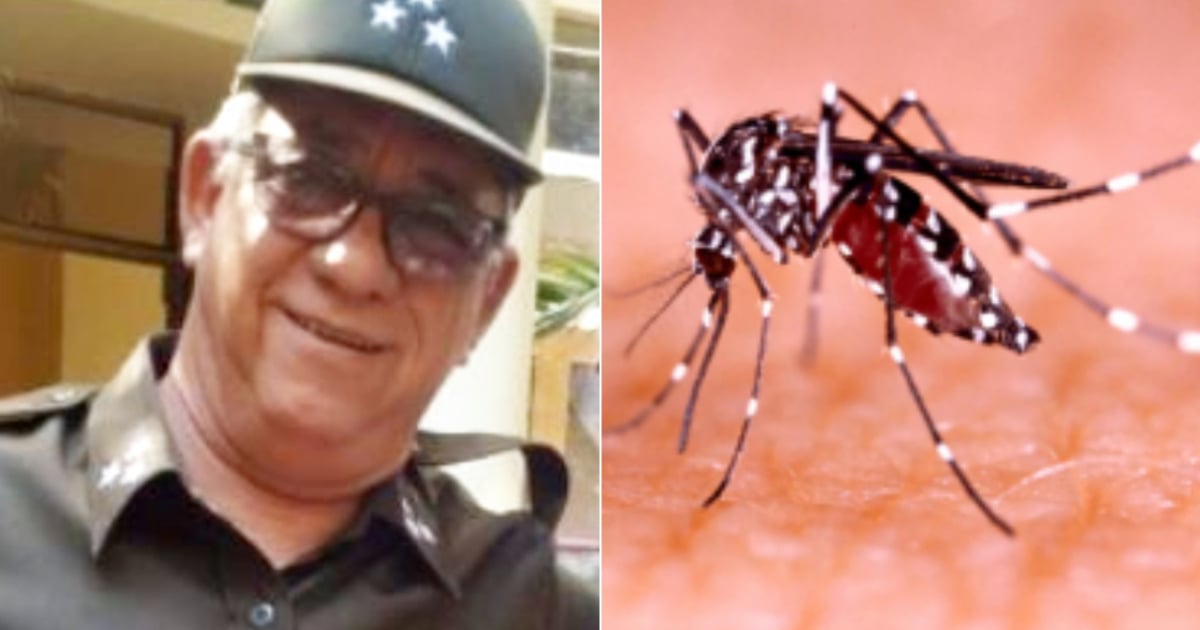Colonel Lázaro Delgado Chaple, the second-in-command of the Directorate of Identification, Immigration, and Foreigners (DIIE) within the Ministry of Interior (MININT), has recently passed away in Cuba, reportedly due to complications from the Oropouche virus. Initial reports of his death circulated on social media through posts by Cuban regime officials, but these were quickly deleted, sparking speculation about the true state of public health on the island.
Orestes Hernández Hernández, a Ministry of Foreign Affairs (MINREX) official, was one of the first to report on the colonel's death via Facebook, mentioning that Delgado Chaple had succumbed to complications from the Oropouche virus. This was echoed by Miguel Ángel Moreno Carpio, the Cuban consul in Mexico City, who highlighted the colonel's willingness to assist in various consular tasks. These posts were captured by the independent outlet CubaNet, which reported the incident on Tuesday.
A Shroud of Silence and Speculation
Shortly after these announcements, both posts were removed from social media, leaving a void filled by independent media reports and screenshots taken before the censorship. As of now, no official details about Delgado Chaple's death have been provided, and the Ministry of Public Health of Cuba (MINSAP) has not publicly acknowledged any deaths related to the Oropouche virus, despite increasing cases nationwide.
A Controversial Legacy and Allegations of Repression
In addition to his role in the MININT, Delgado Chaple was identified by the Foundation for Human Rights in Cuba (FHRC) as an enforcer involved in the forced expulsion of activists, journalists, and regime critics. According to Hernández Hernández, the late colonel was part of the team that managed security at the airport during President Barack Obama's visit to Cuba. He later supervised the renovation of the Museum of the Denunciation, a project initiated by General Raúl Castro and completed in August 2017 to showcase the Cuban people's resistance to "imperialist actions."
In 2022, the FHRC announced plans to include Delgado Chaple in its database of repressors, documenting officials implicated in human rights violations. They also mentioned potential inclusion of Colonel Mario Miranda Rivera, the head of the Directorate of Identification, Immigration, and Foreigners of the MININT. However, a recent review of the database by Diario de Cuba found no records for either of the MININT colonels.
The Growing Impact of the Oropouche Virus
Delgado Chaple's death adds to a rising number of complications attributed to the Oropouche virus in Cuba, raising concerns both domestically and internationally. The government's secrecy and lack of transparency in communicating health risks not only fuel distrust but also highlight the public health challenges facing the island amid an unprecedented health crisis.
Oropouche Virus: An Underestimated Threat
The Oropouche virus, transmitted by mosquitoes, has affected hundreds of people in Cuba, as acknowledged by MINSAP, albeit without mentioning any fatalities so far. By August, the official count of diagnosed cases since May had reached 506, some of whom developed meningitis as a complication, emphasizing the criticism over the lack of transparency in managing the crisis.
Miguel Ángel Ruano, president of the Free Cuban Medical Guild, has repeatedly denounced that the lack of medications and improper case management contribute to severe complications and deaths associated with the virus. "The island's healthcare system is not equipped to handle the Oropouche virus," Ruano warned in an interview with CiberCuba in late May.
"Deaths from acute febrile syndrome of unspecified cause are being ambiguously recorded on death certificates, obscuring the true incidence of Oropouche," Ruano stated in late June. In late August, it was reported that Samuel Eugenio Crespo Martínez, a 26-year-old Cuban doctor from Cabaiguán in the province of Sancti Spíritus, was in critical condition due to encephalitis caused by the virus.
Moreover, the death of a student in Santiago de Cuba in June raised concerns about the authorities' lack of transparency, as they have not officially reported any deaths linked to this virus. "In Cuba, we have no serious, critical, or fatal cases of this disease," emphasized Dr. Francisco Durán, national director of Hygiene and Epidemiology, in late August.
However, the spread of the Oropouche virus in Cuba underscores the island's health crisis and the challenges it poses to a regime that has neglected the public health system, leading to the collapse of hospitals and the most severe medication shortage in its history.
